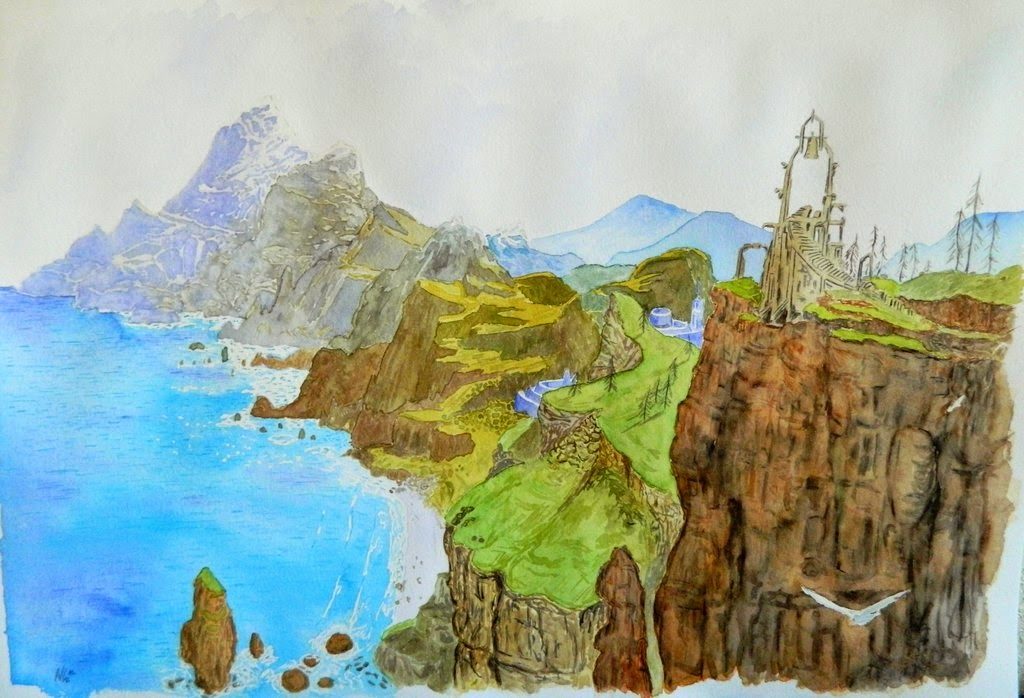Revising the Novel: Absorbing the Advice
Last week, I wrote about knowing when you need help in your novel revisions. I’m two years into the first sparks of The Longest Day of the Year and now, two editors as well. Not the kind of editor that is paid by your publishing house and coaches you through various revisions of a novel that’s contractually promised a publication date and a paycheck. But the kind that comes by way of referral and is hired at the author’s expense for a once-over of a manuscript-in-progress to help make that next creative leap.
 |
| Something like this, by Jalipuchi, only less vibrant and vivid. |
The good news is, I can see the edge of the other side of the cliff I’ve got to land on. In my mind’s eye, it’s like a historical Zen watercolor–mostly white with a few brushstrokes of green, gray, and brown to suggest a village, a deep canyon, and a distant cliff edge overlooking a gorge. I’m standing on one side of the gorge. The next creative path for my novel is on the other side. It’s that far cliff edge, tucked into the clouds and almost dreamlike, that I’m aiming for. Before I hired help, I had to remind myself that the cliff edge was even there, even though I couldn’t see it. Now, I can make out its outline through the fog.
A good editor is one who gives you the tools to build the bridge you need in order to get across. And if you’ll let me take the analogy a beat further, that same editor will likewise understand that there’s a fine balance between a writer’s sense of creative entitlement and a writer’s need for outside assistance. The best feedback, therefore, gives the writer the right tools and points in a possible direction (“Right over there, by that gray boulder. Maybe if you start building your bridge there, you’ll make it across most efficiently,” the editor might say.), but doesn’t ever build the bridge for the writer.
I’ve re-read the letter from my editor three times. Blogging about it helps reinforce the learning and likewise persuades me to take my time. I’ve always wanted the end goal sooner than I was able to reach it. It’s one of the things that I think has enabled me to remain disciplined and focused–but it likewise always threatens to exhaust me. Here, I have a chance to move very, very slowly–perhaps as slowly as I moved this winter–while also trusting in my process. In oanother week or so, I’ll start drafting again, likely by hand. It’s scary to think of that blank page after so many hundreds have already been written but I have to trust that those pages are inside of me–at least their emotional significance–and that better words, more characterizing, tighter, impactful words and moments will come if I give them the space t0 lay down.

